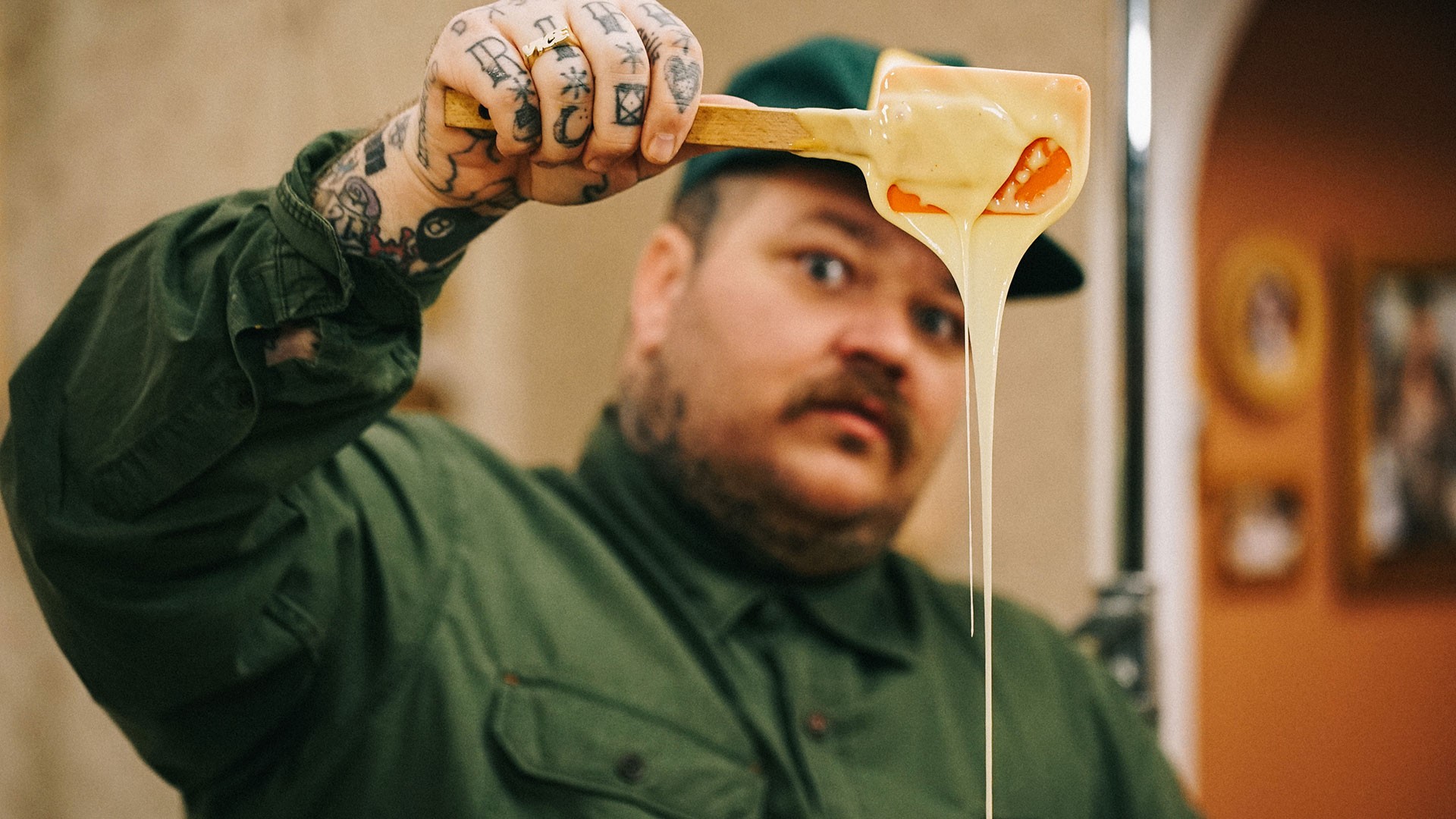Composite image: queso via Flickr user Brown Eyed Baker; Scrabble via Flickr user Stuart Hines
Merriam-Webster just added 850 new vocabulary words for your Scrabble pleasure. Among the 850 new additions were a bunch of foods and drinks, including (alphabetically) aquafaba, Arnold Palmer, cotija, fond, harissa, kabocha, kombucha, natto, poke, queso/chili con queso, tzatziki, unoaked, and za’atar. So how do entries like queso end up in there in 2018 and not 1918? We talked to Emily A. Brewster, associate editor at Merriam-Webster, Inc. to uncover the process.“To qualify for entry in the dictionary at Merriam-Webster.com (or in any of our dictionaries), a word must demonstrate that it’s an established member of the English language,” says Brewster. “It does that by meeting three criteria: frequent use, widespread use, and meaningful use. Those criteria apply for all vocabulary, whether a word be from technology, medicine, pop culture, or the dinner plate.”

There isn’t a special committee assigned to determine which words make the cut. “It’s just a staff of lexicographers surveying the evidence and proposing words that meet the criteria for entry,” Brewster says. “Each definition is seen by several editors, with our Director of Defining making the final call.”She added: “That said, when a word suddenly comes on the scene and is immediately ubiquitous, we take note. The Twitter sense of tweet, for example, got in very quickly.”
Advertisement

There isn’t a special committee assigned to determine which words make the cut. “It’s just a staff of lexicographers surveying the evidence and proposing words that meet the criteria for entry,” Brewster says. “Each definition is seen by several editors, with our Director of Defining making the final call.”
Social media comes into play when the M-W staff is determining what gets consideredan established member of the English language—but it’s not necessarily about what gets the most traffic. “While we pay attention to words that go viral or that are bandied about on social media, we only enter terms that we believe have staying power,” explains Brewster. “Our aim isn’t to cover the hottest, newest slang words; it’s to catalog the established words of the English language.”Natto: a dish of fermented soybeans with a pungent flavor and gluey texture that is eaten chiefly in Japan and usually served over rice.
Fond: small particles of browned food and especially meat that adhere to the bottom of a cooking pan and are used especially in making sauces.
Advertisement
Many of the new food and drink words come from other languages, a classic English language move, according to Brewster. “English is a profligate borrower of words from other languages—although we often change the words’ meanings to suit our own needs, and we never give the words back,” she says.Aquafaba: the liquid that results when beans are cooked in water.
It’s up to lexicographers to decide when the borrowing becomes permanent. “One clue that a word has been naturalized is when it’s no longer regularly italicized. The other, more important clue is when the word is no longer glossed,” Brewster says. “As long as a word is typically followed by an explanation of what it means, we know that the person using the word doesn’t expect their readers to know what the word means—which tells us it’s not fully established yet.”Arnold Palmer: a cold beverage of iced tea mixed with lemonade.
Does natto getting into the dictionary have anything to do with how many people are actually into natto? Probably not.
"How many people are eating a given food has little to do with whether the name of that food qualifies for dictionary entry,” says Brewster. “What’s relevant to us is how many English speakers are talking—and, more importantly, writing—about that food. Our earliest evidence of natto in print in English dates to 1899, but it’s only in recent years that we’ve collected enough evidence of it in use to determine that it’s fully established in English.”